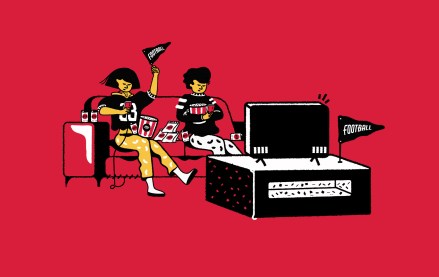Last chance to save on Digiday Publishing Summit passes is February 9
One media agency gets vocal against principal media — and hopes others will too

Jared Belsky’s never been known to be shy, quiet and retiring. The co-founder and CEO of agency group Acadia has always spoken up, either through the press or on LinkedIn, about the industry issues he’s passionate about.
Belsky’s latest passion point: fomenting awareness of – and resistance to – principal-based media on the part of agencies for their clients. And he’s going public with his efforts starting today, with the launch of a website, saynotoprincipalmediabuying.com, as well as an ad campaign that will run on LinkedIn as well as some advertising trade publications.
Belsky has already weighed in on the practice, which Digiday explored in the latest Media Buying Briefing, on LinkedIn, penning a lengthy piece outlining his reservations, directing it to Fortune 500 brands — although he admits that there’s little hope the agency holding companies have any intention of doing away with principal media.
His focus, rather, is on other media agencies, as well as brands, to raise awareness of the practice, which a recent ANA report acknowledged a surprisingly low number of marketers know about.
“This is something that is deeply, deeply confusing and in the shadows,” Belsky told Digiday, “where there’s no education. We’re not at the solve part, right? We’re at the understand part, self assessment part, ask hard questions part, negotiate part, [and] change habits part.”
And although Belsky, who is a veteran of the holding company system, knows he can’t change what those holdcos do, he points to “collateral damage” their practices inflict on smaller brands and agencies.
“While the benefit may be enjoyed by a very few, the collateral damage is widespread,” Belsky explained, painting a picture of the proverbial 27-year-old holding company planner who’s working on behalf of the smaller clients but is mandated by their superiors to recommend inventory that the agency has taken a principal position in. “So while the gigantic fortune 500 clients who have signed up for this may be getting some benefit, all those downstream clients are possibly, probably, and often, getting pressured into positions that may or may not be beneficial to them.”
In his worldview, Belsky said, “an agency should be paid a fee that the client and agency have agreed to that’s fair, and this is the only way that they should make money. And then the brand should be entitled to know where all of their money goes, and there should be no other markups. That is the only road to trust.”
Will other agencies join the crusade? Certainly many agencies are philosophically aligned, including Crossmedia and Wpromote — and Tinuiti and PMG are also said to be supportive behind the scenes.
David Dweck, svp of paid media at Wpromote, said the agency has a clear-cut position against the use of principal media. He too was a holding company veteran and remembers when in the early 2010s the agencies launched trading desks that were selling cheap inventory at markups as well as the infamous K2 Report a few years later that called out agencies for hiding from their clients the rebates that media and publishers were giving them.
“We don’t do it for our clients,” said Dweck, who is not yet planning to support Belsky’s efforts. “And if we are to buy linear, we work with partners that offer principal based rates, and we give all those rebates that we would have otherwise gotten right back to the client to hit their bottom line. So we’re able to get parity with rates, but also give them cash back to their bottom line, which is probably far more important to our clients than it is to us.”
Yogi Jashnani, currently CRO for trampoline park chain Sky Zone, which is an Acadia client, also voiced his support for Belsky’s efforts — but for Jashnani, it’s as much about working with media directly, especially the money exchange part, to avoid the very conflicts that principal media can represent. But when working with a media agency, the best time to ensure no principal media hanky panky is taking place is at the very beginning of the relationship.
“As a client, I need to make sure that my interests are protected, and the best time to get all of this done is when you’re starting a new relationship with the agency,” said Jashnani, who calls it the honeymoon period with Belsky’s Acadia. “Everybody’s high-fiving each other. That’s the time when you make sure that all of the protections that you need, you’re getting — and they’re reasonable. The agency partner is also much more open at the start of a relationship to give you whatever protections and direct buying and transparency that you’re looking for.”
As Jason Isbell sang in Different Days, “The right thing’s always the hardest thing to do.”
More in Media Buying

GLP-1 draws pharma advertisers to double down on the Super Bowl
Could this be the last year Novo Nordisk, Boehringer Ingelheim, Hims & Hers, Novartis, Ro, and Lilly all run spots during the Big Game?

Programmatic is drawing more brands to this year’s Winter Olympics
Widening programmatic access to streaming coverage of the Milan-Cortina Games is enabling smaller advertisers to get their feet in the door.

WPP Media beefs up its sports insights prowess with new partnership with Genius Sports
WPP Media’s partnership with Genius Sports brings first-party audience data to the game, which may help lead to better outcomes for clients.








